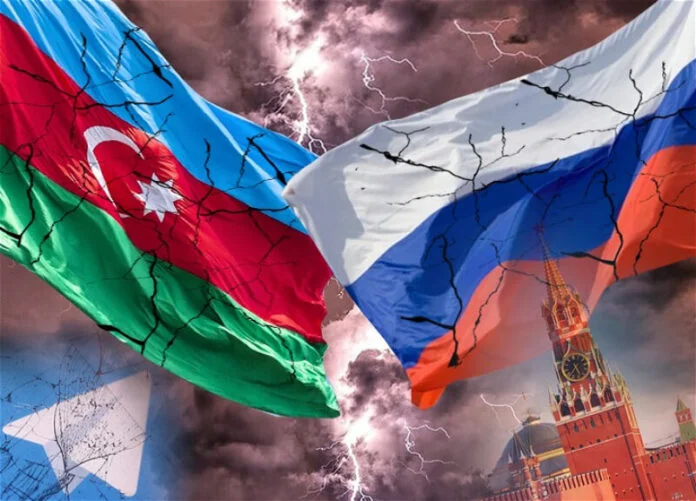BAKU — September 1, 2025 – In every nation, the dream is the same: to have a history rich in achievements and as few shameful chapters as possible. When darker episodes do occur, societies face a choice — confront the past honestly, or bury it under myths. Germany apologized to the Jewish people, the United States to Native Americans and descendants of slaves. Others choose denial.
Nowhere is this denial more industrialized than in Russia today. What passes for journalism on Moscow’s federal channels has less to do with reporting than with sport — a grotesque contest to see who can lie louder, smear more viciously, or spin the most absurd conspiracy.
From MH17 to the AZAL tragedy
The methods are familiar. When the Malaysian Airlines flight MH17 was shot down over Ukraine in 2014, Russian television floated every theory imaginable: a Ukrainian fighter jet, a stray missile, even a plot to target Vladimir Putin’s own plane. One “exclusive satellite image” later turned out to be a crude fake.
Today, the same circus surrounds the AZAL aircraft downed near Grozny. Pilots initially speculated about a bird strike or oxygen tank explosion — because who could imagine a civilian plane being targeted without warning? Yet evidence was presented: fragments of a Russian Pantsir missile pulled from the fuselage. Instead of accountability, Russian pundits push tales of Ukrainian drones or Western plots. They know it is false. They repeat it anyway.
Imagine the reverse: had Azerbaijan downed a Russian passenger jet, Moscow’s media would demand apologies, compensation, and trials. When an Armenian helicopter was mistakenly hit in 2020, Baku did exactly that — admitted responsibility, apologized, compensated the families, punished those responsible. Russia cannot bring itself to do the same.
The factories of fake
What keeps this machine running is quantity. Bury the fact beneath a flood of lies. Repeat the lies until the public either believes them or loses interest. It is the same technique used to blur the massacres in Bucha and Irpin, or the poisoning with Novichok in Britain.
The problem for Moscow is that outside Russia, no one buys it anymore. In Azerbaijan, people long ago tuned out Russian channels — not by government decree, but out of sheer disgust. The “factories of disinformation” have become factories of embarrassment.
Why Russia is losing its neighbors
Russian officials like to explain the drift of former Soviet republics as the result of “Russophobia.” In reality, the reason is simpler: Russia itself. Its refusal to face its past honestly, its treatment of neighbors with arrogance, and its media’s shamelessness have done more than any Western diplomat could.
By poisoning its own information space, Russia has only succeeded in isolating itself. The Kremlin may still command airtime, but it has lost credibility — and with it, the trust of the very countries it once claimed as allies.
History has its own laws. No amount of propaganda can rewrite them.
Video by Caliber.Az


